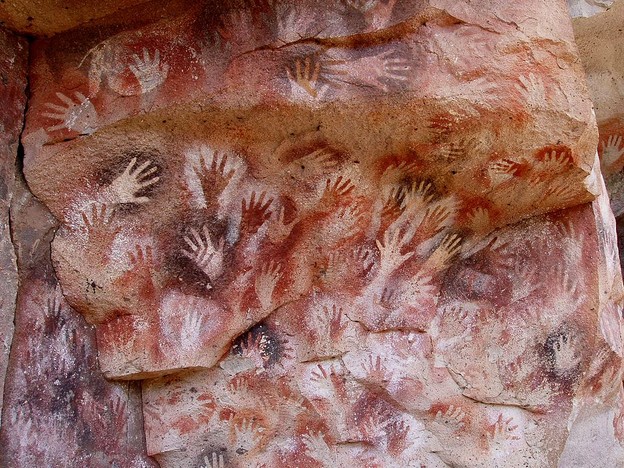What will poetry be in ten thousand years? (6)
Charles Bernstein

Post-ecopoetics is a guide for thinking the longevity and durability of the poem in deep time. I have asked a number of poets and scholars to serve as additional guides by asking them to respond to the following questions: “What will poetry be in ten thousand years? If you wrote a poem that you knew would last ten thousand years, how would this impact your writing?”
Each of their responses will be posted as an individual commentary linked to this series.
Charles Bernstein:
If a poem fails in a forest because no one who hears it, is it still a poem? If a poem denies time, is it any less timely? Might we speak of a timely poem but also an untimely one? The more a poem is in time the more it becomes part of the folds and veils of deep time. In other words, a poem is always in now time, with one foot in before, one foot in after, and another in neither. The oldest human-made art I’ve seen with my own eyes is the inscriptions on cave walls and rocks going back twenty thousand to forty thousand years. That is also art for twenty thousand and forty thousand years from now.
Time is a daydream to which we escape. Meaning meanders in the meantime, meaning by means of means at hand. If most people have no time for art, I want a poetry that inhabits that no time.
Most days I am happy if a poem can make it through the night.
Before Time
In a time before beginnings, the songs of poets echoed the language of cosmos and cosmos echoed poets’ charms. Poem and cosmos were as intertwined as thunder and lightening. After aeons, the poets’ songs fell on deaf ears. Still poets sang of that archaic time when their words called the sentient world into being. And these new charms were as marvelous as the awe-inspiring songs of the archaic times they celebrated. After a succession of generations, poets sang no more. Yet their poems invoked, with fervor and majesty, the memory of ancient songs. Many eras passed: poets no longer remembered ancient songs or their secrets. Still, they recognized the loss and created phantasmagorias that collapsed onto themselves, plenitudes of metamorphosis amidst dazzling emptiness. These new poems were possessed of such stunningly dark mysteries that the universes, visible and invisible, shuddered when they were performed. And now, inestimable time after the mythic creators of these dark phantoms, poets have no memory even of the loss of the ancient songs; their words ring hollow against an indifferent universe; they are bereft of images, of stories, of illusion. In these times, poems are made just of words in infinite constellations. Yet in their supernal impotence these poems are as sublimely daemonic — world defining, world defying — as those most archaic songs of the time before beginnings.
After S.Y. Agnon after Gershom Scholem after the Baal Shem Tov
Post-Ecopoetics